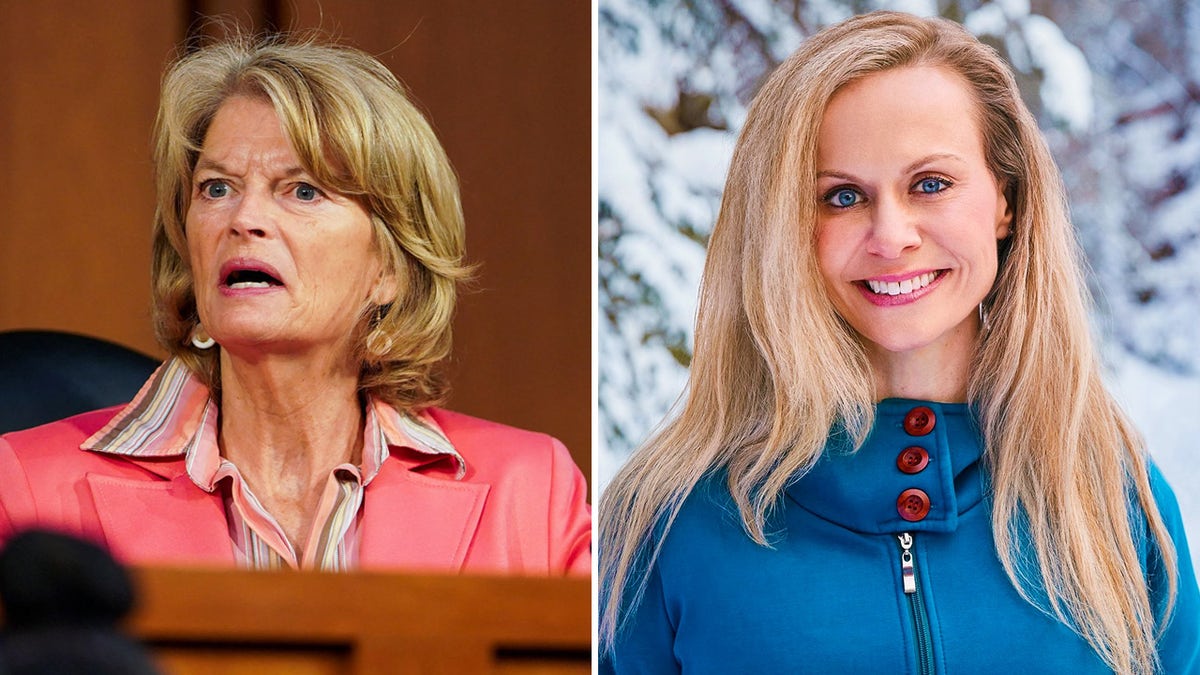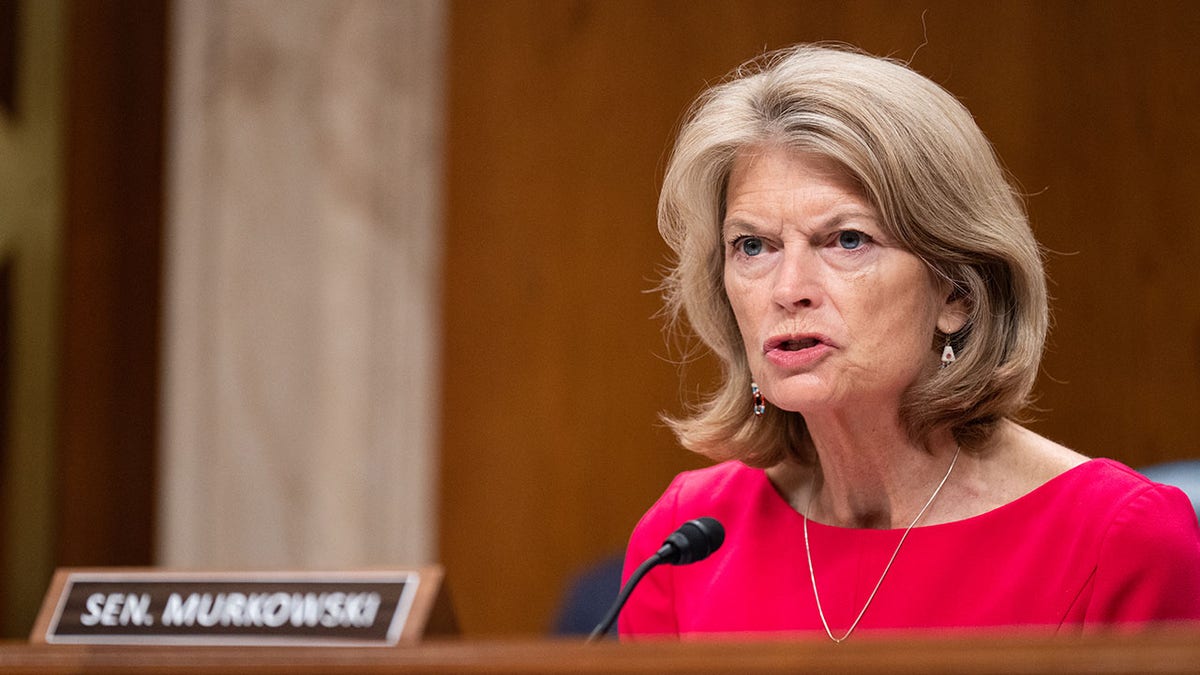Alaska Senate candidate blasts Lisa Murkowski for enabling Biden’s ‘radical’ energy policies
Kelly Tshibaka says that Rep. Murkowski, R-Alaska, is ‘complicit’ in allowing Joe Biden to enact a ‘radical’ environmental ‘extremism’ agenda.
Incumbent GOP Sen. Lisa Murkowski and former Alaska commissioner of administration Kelly Tshibaka are among the candidates who will advance to the November general election where they will face off against one another in the race to represent Alaska in the Senate.
The other two candidates who will advance to the general election have yet to be determined. Patricia Chesbro, a Democrat, was in third and garnered nearly 10,000 votes as of Wednesday afternoon, compared to Murkowski's 66,268 and Tshibaka's 61,225, according to Alaska primary election results from the Associated Press.
A total of 19 individuals competed in the contentious top-four primary election, with all candidates listed on the same ballot regardless of party affiliation. Of those on the ballot, there were eight Republicans, three Democrats, one Libertarian, five independents, and two Alaskan Independence Party candidates.
Ahead of the election, leading contenders in the race included Murkowski and Tshibaka, both of whom share opposing views of former President Donald Trump.
TOP TRUMP TARGETS CHENEY, MURKOWSKI, FACE VOTERS IN TUESDAY'S PRIMARIES IN WYOMING, ALASKA

Incumbent Alaska GOP Sen. Lisa Murkowski and Alaska Senate candidate Kelly Tshibaka (Greg Nash / POOL / AFP, Tshibaka campaign)
Seven Senate Republicans joined all 50 Democrats in voting to convict Trump in the February 2021 Senate impeachment trial, where he was acquitted. Of those seven, Murkowski is the only one running for re-election this year.
Murkowski’s call for Trump to resign following the Capitol attack and her vote to convict Trump on charges he incited the attack were not the first times she has raised his ire. The senator voted against a Republican-backed plan in 2017 to repeal the national health care law known as ObamaCare, and a year later she opposed confirmation of now-Supreme Court Justice Brett Kavanaugh, whom Trump had nominated.
Last year, Trump, who has repeatedly targeted Murkowski over her disdain for him, endorsed Tshibaka and traveled to the state to headline a rally for her last month.

Alaska Senate candidate Kelly Tshibaka speaks alongside former US President Donald Trump during a "Save America" rally campaigning in support of republican candidates in Anchorage, Alaska on July 9, 2022. (PATRICK T. FALLON/AFP via Getty Images)
Tshibaka, who is also backed by the Alaska Republican Party in the race, took aim at Murkowski over the weekend, telling Fox News that Alaska needs "a senator who’s going to vote for what’s in the best interests of Alaska and not say one thing to us and then do the opposite in D.C."
NY TIMES PRAISES CHENEY, MURKOWSKI AS ‘MODELS OF POLITICAL BRAVERY,’ ‘ESSENTIAL TO DEMOCRACY’
Murkowski, however, has received support from Senate Minority Leader Mitch McConnell, fellow Alaska Republican Sen. Dan Sullivan, and Democratic Sens. Joe Manchin of West Virginia and Kyrsten Sinema of Arizona. In addition, she also received support from the National Republican Senatorial Committee.
Murkowski told Fox News on Saturday she is confident that "the people of Alaska will return" her to the Senate.

Sen. Lisa Murkowski, R-Alaska, is one of seven senators who voted to convict Trump in the February 2021 Senate impeachment trial. (Bill Clark/CQ-Roll Call, Inc via Getty Images)
The November general election for the Senate seat will utilize ranked-choice voting, a ballot-approved measure by residents in the state in 2020 that dismissed the state's previous election method consisting of partisan elections ahead of general elections.
CLICK HERE TO GET THE FOX NEWS APP
Ranked-choice voting allows voters to rank candidates in order of preference on their ballots. Should one candidate receive a majority of first-preference votes, that individual is declared the winner in the race. However, if no candidate wins a majority of first-preference votes, the candidate with the fewest first-preference votes is eliminated. Following the elimination of the candidate who received the least amount of first-preference votes, voters' second-preference choices are evaluated and a new tally is established to determine whether a candidate in the race has received a majority of the vote. That process is repeated until a candidate wins a majority of the vote.
In 2018, Maine became the first state to use ranked-choice voting in a federal election.
Fox News' Paul Steinhauser contributed to this report.






